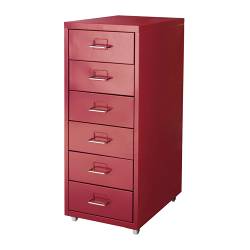I started with Folding@Home (F@H, FAH) a couple of weeks ago.
If you are unfamiliar with the phenomenon of distributed computing (DC), it involves downloading and installing a small program on your computer. The program runs as a low-priority task in the background so as not to interfere with normal use, but takes over when the computer is idle to calculate something of interest to the project. Result are sent to a central server, and the program gets a new task automatically.
The point from the project's point of view is that millions of small computers put together can do more calculations than even the largest supercomputers in the world.
People volunteer their computers because the program is not too much in the way of other work. And perhaps because it gives a warm fuzzy feeling to selflessly sacrifice idle computer time for the betterment of mankind. Or something.
The intention was (is?) that this kind of program would run on existing, everyday work or home computers while people did business as usual.
But some of us (mostly guys, I believe - boys and toys or something :) get slightly caught up in the performance statistics: How many points did I get today? When will I pass this other guy right ahead of me? Can my team X beat that other team Y?
Then we start looking for ways to improve the score: Leave the computer to run 24/7, turn off the screen saver (it steals processor cycles from the DC program), talk family, friends or colleagues into running the program as well. And maybe start optimizing your hardware for that particular project, that's where I am.
The most dedicated build "farms": A bunch of self-assembled computers put together just for
a) the fun and challenge of building it
b) racking up points and advancing on the statistics
c) occasionally for personal, business, training or other reasons
Some of these farms can be quite impressive in their own right. A couple of examples:

Ikea Helmer - 6 Intel Quad and 48 GB RAM in a cabinet from IKEA. For 3D rendering.
I have no intention of competing with these guys, I have neither the floor space nor the budget for it.
But I was already planning on making a home file server, and was looking into options for making it energy efficient and quiet for 24/7 operation.
So what I will do is is adjust the plan for my home server to include a few Folding@Home-specific optimizations. I do not aim for the performance crown. But I intend to compete in the class for "energy-and-cost-efficient performance on a budget that doesn't make too much noise in a small condo".
I aim to have my home-server-and-semi-dedicated-folding-client up and running in a month or two. I will post updates here.




